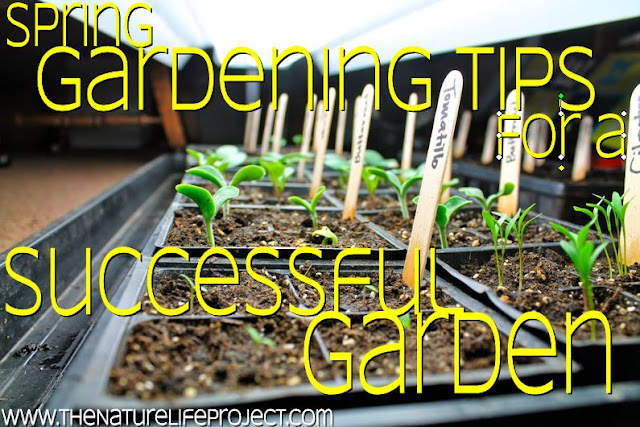Get a head start by starting seeds under a grow light indoors
The sun is shining and spring has sprung. For many of us, this means it's time to plant
our gardens. Along with a bountiful
harvest, our gardens will provide us with some challenges throughout the
season. Here are three steps we can take
that will increase our harvest.
Start Seeds Indoors
Whether you grow flowers, veggies, or herbs, a longer
growing season means higher yields. By
starting your seeds early under a grow light, your plants will grow longer in
their vegetative state. This means
larger root mass and more foliage. As
they say, the bigger the roots, the bigger the fruits! I recommend researching each plant you want
to start. Some plants, such as lettuce
and root vegetables, don't transplant well.
Prevent Pests with
Neem Oil
Because our mild winter didn't kill off all of last year's
bugs, we can expect more pests than usual in the garden this year. As with anything, the best cure is
prevention. A foliar application of neem
oil is an effective way to repel pests before they make their home in your plot
of dirt. Mix a little bit of neem oil
with water in a spray bottle and spray your starts, top and bottom of the
leaves, before you put them in the ground.
Use a Mulch to Conserve
Water
Our mild winter also equates to a hot, dry summer, which
means we will need to be on top of our watering system. Whether we hand water or use an irrigation
system, using a mulch will mean we need to water our garden less. Woodchips make an excellent mulch. Before you plant, add a layer of compost on
top of your soil, then add a layer of woodchips on top of the compost. When you water, the woodchips will retain water
until your soil needs it, and will prevent moisture from evaporating. Your watering schedule will be drastically
reduced.
Corn growing with a woodchip mulch to conserve water
It is important not to mix the chips in with the soil so
they will not leach nitrogen. Simply
layer them on top of the garden, moving them aside when you put your starts in
the ground. The benefits of using
woodchips go far beyond water conservation.
They will also prevent your soil from compacting, prevent soil erosion,
make weeds less frequent and easier to remove, and will feed your soil as they
decompose. Don't use cedar chips, as
they don't decompose very quickly. A
tree service will usually give you their excess woodchips for little or no
cost.
A lush garden is good for our body, mind and soul, and is so
much more enjoyable when the process goes smoothly. These tips will make this gardening season
your best yet!




No comments:
Post a Comment